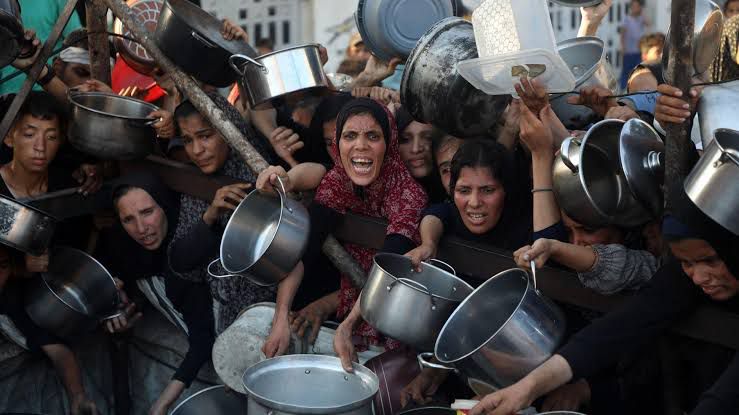Israel Declares Gaza Fighting Pause Amid Deepening Hunger Crisis
The Israeli military announced it has started air-dropping food into Gaza and firmly denied accusations that it is intentionally using starvation as a tactic against Palestinian civilians.
In its statement, the army said it was coordinating with the United Nations and international organizations to expand the flow of humanitarian aid into the enclave. However, UN officials and aid groups in Gaza had not issued any immediate responses, and some humanitarian sources privately expressed doubt, saying they would wait to see whether the promised measures materialize on the ground.
The army stated that temporary daily pauses in fighting would apply only to specific areas—Al-Mawasi, Deir el-Balah, and Gaza City—from 10 a.m. to 8 p.m. local time. It added that “designated secure routes” throughout Gaza had been opened to allow UN and aid agency convoys to deliver and distribute food and medicine safely.
According to the Israeli military, these actions—combined with its ongoing offensive against Palestinian armed groups—should refute what it described as “false claims of deliberate starvation” in Gaza.
Israel had imposed a complete blockade on the territory on March 2 after ceasefire negotiations collapsed. Limited aid deliveries were permitted to resume in late May following warnings of widespread hunger.
Before Israel carried out an airdrop of seven pallets of food, the United Arab Emirates had already announced plans to restart its own aid drops, and the United Kingdom said it would coordinate with Jordan to help facilitate similar operations.
Despite these efforts, the humanitarian crisis remains severe. On Saturday, Gaza’s civil defense agency reported that more than 50 Palestinians were killed in Israeli strikes and shootings, including some near aid distribution centers.
“We ask God and our Arab brothers to push for a ceasefire before we all die,” said Gaza resident Hossam Sobh, describing how he risked his life to grab a bag of flour while Israeli tanks were nearby.
That same day, Israeli forces intercepted a vessel operated by activists from the Freedom Flotilla Coalition as it attempted to challenge the naval blockade and deliver supplies by sea.
Over 100 non-governmental organizations have warned that “mass starvation” is spreading rapidly in Gaza. While Israel announced on Telegram that it had conducted an aid airdrop “to help facilitate humanitarian deliveries,” aid officials remain skeptical.
Philippe Lazzarini, head of the UN agency for Palestinian refugees (UNRWA), stated that airdrops cannot meet the urgent needs of Gaza’s more than two million residents. “They are costly, inefficient, and can even endanger starving civilians,” he said.
Israel maintains that it does not restrict the number of aid trucks entering Gaza and instead blames relief organizations for failing to collect and distribute supplies once they cross the border. Aid groups counter that the Israeli military imposes heavy regulations and tightly controls internal road access.
Meanwhile, live footage from the Handala boat, operated by pro-Palestinian activists, showed Israeli troops boarding as it neared Gaza, but the video streams were cut shortly afterward.
Due to strict media restrictions and limited access to many parts of Gaza, independent confirmation of casualty figures remains difficult.
Israel’s military campaign began after the Hamas attack of October 2023, which killed 1,219 people in Israel, mostly civilians. According to the health ministry in Gaza, Israeli operations have since killed 59,733 Palestinians, the majority of them civilians.

